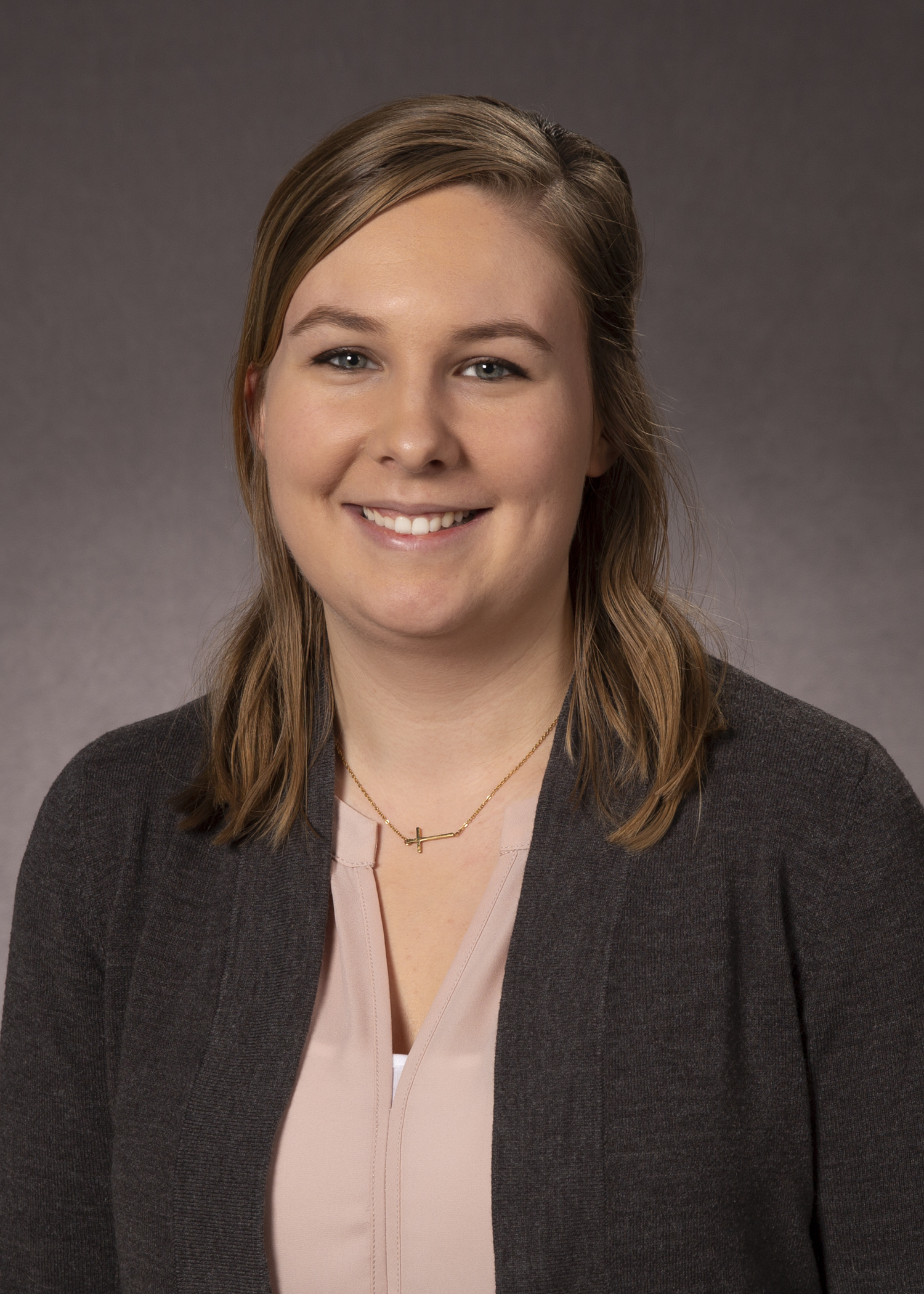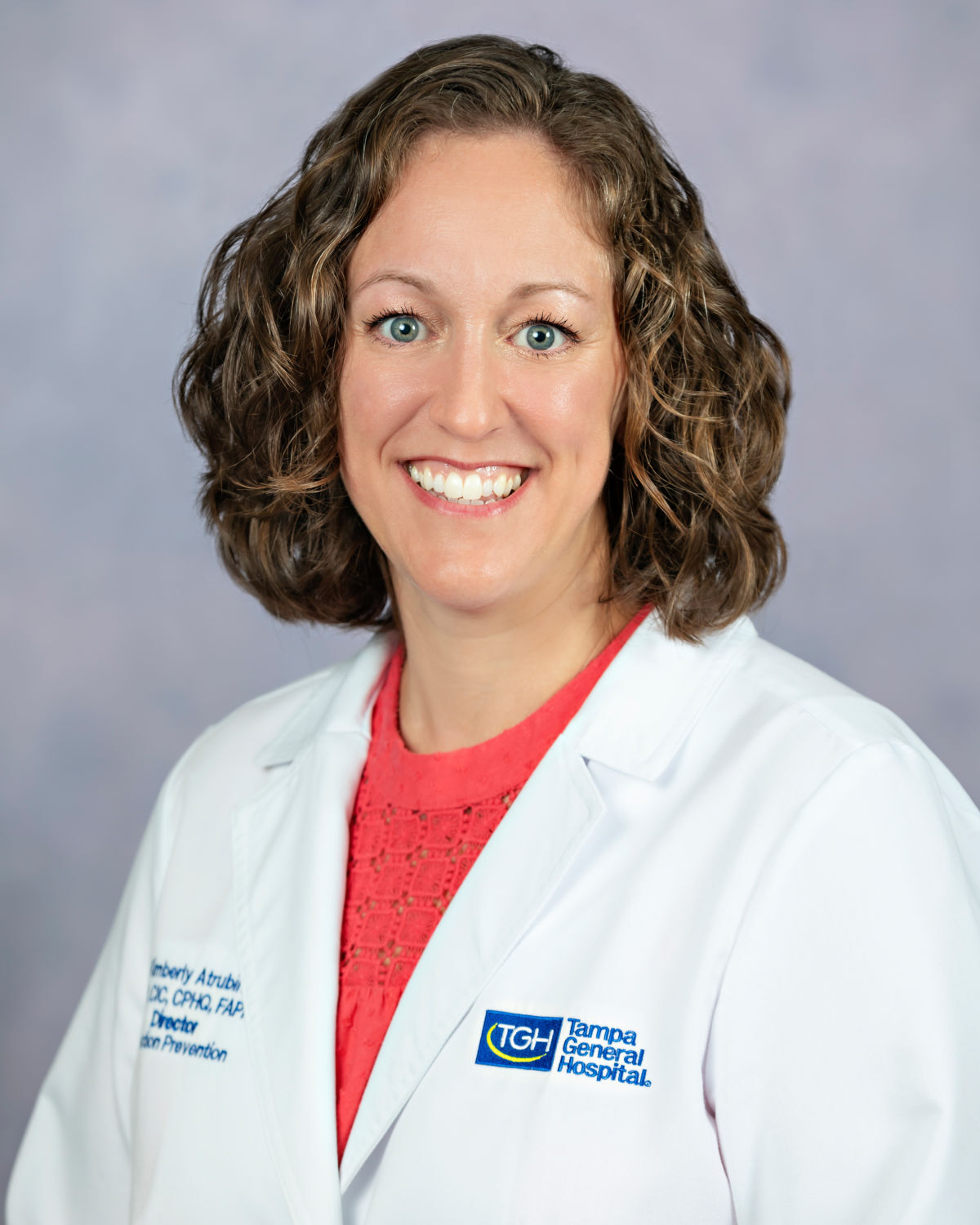
HAI Fast Forward Series Package
-
You must log in to register
- Member - Free!
Check out our APIC HAI Fast Forward Series webinars!
Advanced Search This List
-
Contains 3 Component(s), Includes Credits
Recorded On: 10/11/2022
Participants will be able to describe the importance of accurate and consistent HAI surveillance during a global pandemic. Understand how a medium-sized healthcare system partnered with a third party vendor to successfully contract out surveillance. And compare challenges and successes of contracted surveillance.
Join us for another webinar in our HAI Fast Forward series. Participants will be able to describe the importance of accurate and consistent HAI surveillance during a global pandemic. Understand how a medium-sized healthcare system partnered with a third party vendor to successfully contract out surveillance. And compare challenges and successes of contracted surveillance.

Christina Zirges, DNP, APRN-BC, CIC, FAPIC
System Director of Infection Prevention and Control
SSM Health
Christina Zirges, DNP, ACNS-BC, CIC, FAPIC is currently the system Director of Infection Prevention and Control for SSM Health which includes oversite for infection prevention for over twenty hospitals and over one hundred outpatient locations. Chris facilitates the system-level Healthcare Epidemiology Infection Control (HEIC) committee encompassing four states with a focus on implementing and standardizing evidence-based infection prevention strategies. Memberships include the Association of Professionals in Infection Control and Epidemiology (APIC), the Society for Healthcare Epidemiology of America (SHEA), and past president and board member of the Greater St. Louis APIC chapter. Other professional endeavors include board member on the board of directors for the Certification Board of Infection Control (CBIC) for two terms, Vice-Chair of the APIC Professional Development Committee, a board member on the Board of Directors for the Healthcare Laundry Accreditation Council (HLAC), and the HAI Advisory Council through the University of Missouri (Sinclair School of Nursing).

Theresa Gratton, BSN, RN, CIC
Senior Infection Preventionist
SSM Health
Theresa is a SSM Health System Senior Infection Preventionist with surveillance and data responsibility for 22 acute care/critical access hospitals. She attended Southern Illinois University at Edwardsville and graduated with a Bachelor of Science degree in Nursing. During her career with SSM Health, she has worked as an ICU RN and then as an Infection Preventionist until 2018 when she assumed a Senior Infection Preventionist role. She is passionate about educating others in NHSN surveillance definitions and developing processes in the electronic health record to enhance and simplify surveillance at all levels of healthcare. She enjoys facilitating ways to visualize and understand the NHSN data and healthcare acquired infections, while working with multi-disciplinary teams to promote patient safety and reduce harm.

Jenna Eichelberger, MPH, CPH
Infection Prevention Epidemiologist
SSM Health
Jenna Eichelberger, MPH, CPH, is an Infection Prevention Epidemiologist with SSM Health, a healthcare system based in St. Louis, MO. She received her Master of Public Health degree from Saint Louis University in May 2018, with concentrations in Epidemiology and Biosecurity/Disaster Preparedness. While in her graduate program, she began her career with SSM Health as an Infection Prevention Technician at one of the system’s 20 hospitals. After graduating, she worked as an Infection Preventionist for several months before recently transitioning into an Epidemiologist role. She is a member of her local Greater St. Louis APIC chapter and is also Certified in Public Health (CPH).
-
Contains 3 Component(s), Includes Credits
We Will describe the staffing model during COVID surges as well as adjustment to work as well as how the structure of the Department was updated throughout the pandemic to best support the Infection Prevention needs for the institution.
We Will describe the staffing model during COVID surges as well as adjustment to work as well as how the structure of the Department was updated throughout the pandemic to best support the Infection Prevention needs for the institution.

Amanda Valyko, MPH, CIC, FAPIC
Infection Prevention Project Manager
Amanda Valyko, MPH, CIC, FAPIC, is the Director of Infection Prevention & Epidemiology for Michigan Medicine. The mission of Infection Prevention is to minimize the risk of infections in patients, visitors, and employees, by promoting evidence-based practices. She is very passionate about cleaning and disinfection, specifically related to bridging the gap between manufacturer’s instruction for use and cleaning and disinfection protocols that meet infection prevention/healthcare needs.
Amanda has been an Infection Preventionist since 2006. She received her Master of Public Health degree from the University of Michigan School of Public Health. She is board certified in Infection Prevention & Control and a Fellow of the Association for Professionals in Infection Control and Epidemiology.
Amanda serves as Past President for the Association for Professionals in Infection Control and Epidemiology, Great Lakes Chapter (APIC GL). She has served on the APIC GL Board since 2013 and had previous leadership roles for the Michigan Society for Infection Prevention and Control. In addition, she is a member of the State of Michigan Healthcare Associated Infection Advisory Group and has been involved in the Michigan Hospital Association Keystone ICU Advisory Board. Amanda is an adjunct lecturer for the University of Michigan School of Public Health.
-
HAI Fast Forward Series: Responding to Increased Device-Associated Infection Rates During a Pandemic
Contains 3 Component(s), Includes Credits
Recorded On: 04/20/2022
The session will provide a description of this proven CAUTI and CLABSI assessment process and provide the participant with a comprehensive set of tools for conducting an epidemiologic-based investigation of sustained increases in device-associated infection rates.
Hospitals across the world have seen substantial increases in device-associated infection rates during the COVID-19 pandemic. The causes of these increases are often multi-factorial and include a complex set of interconnected repercussions related to the pandemic. While overseeing infection prevention for a 54-hospital system, the presenter and team implemented an epidemiologic approach to assessing the contributing factors to sustained increases in CAUTI and CLABSI rates using a robust, stepwise process. The session will provide a description of this proven CAUTI and CLABSI assessment process and provide the participant with a comprehensive set of tools for conducting an epidemiologic-based investigation of sustained increases in device-associated infection rates.

Rebecca Bartles, DrPH, CIC, FAPIC
Exec Dir, Infectious Disease Management and Prevention
Providence Health & Services
Rebecca (Becca) Bartles is the Executive Director of Infectious Disease Management and Prevention for Providence. Becca has practiced Infection Prevention for the last 17 years in a variety of healthcare settings and has numerous publications focused on infection prevention staffing and endoscope safety. She received both her BS in Public Health, Health Education and her MPH in Epidemiology from East TN State University. She completed her Doctorate in Public Health in 2021 with a dissertation topic of “Assessing efficacy of an evidence-based Clostridiodes difficile screening tool using electronic medical record data”. Becca also teaches courses at the University of Providence for a Masters in Infection Prevention degree program that she founded in 2016. She has been CIC certified since 2008 and is an APIC fellow. Most notably, though, Becca is the mother of four beautiful daughters, ages 7-23.

Rebecca (Bex) Clarkson, RN, MSN, CIC
Infection Preventionist
Providence St. Joseph Health Services
Rebecca (Bex) Clarkson is an Infection Preventionist with Providence Health System. She is a Registered Nurse by background and has practiced since 2009 in multiple settings across the hospital including Emergency Medicine, Cardiac, Oncology, Acute Observation and Charge Nurse. Her non-acute experience includes work in home infusion, business consultation, envenomation and animal educational presentations, and television set compliance officer. Bex received her MSN with an emphasis in Nursing Education with an intent to teach Nursing School when she fell into Infection Prevention in 2015 and realized that this is where she belongs. She has a passion for patient safety and is determined to prevent patient harm. Bex lives in Sunny Southern California with her husband and their small zoo of animals when she is not travelling the world or visiting her property in the jungles of Costa Rica.
-
Contains 3 Component(s), Includes Credits
Recorded On: 09/01/2022
We will provide an In-depth overview of the CLABSI RN pilot program, Strategies to implement evidence based best practice recommendations with the RN role.
We will provide an In-depth overview of the CLABSI RN pilot program, Strategies to implement evidence based best practice recommendations with the RN role. Discuss challenges and roadblocks within the pilot program. Present data on CLABSI bundle compliance and other HAI metrics from start of pilot to finish. And discuss the permanent role of the Vascular Access team post-pilot and the benefits including sustained CLABSI reduction.
-
Contains 3 Component(s), Includes Credits
Recorded On: 09/14/2022
By combing the RCA2 methodology with modifying existing technologies, we were able to create a more efficient process for all involved.
HAI Fast Forward Series: Using RCA2 as a Framework for CLABSI and CAUTI
The RCA2 process investigates adverse events to discover underlying system issues that contributed to the event. The RCA2 team is a multidisciplinary team responsible for conducting research, identifying root cause contributing factors, and identifying corrective actions. By combing the RCA2 methodology with modifying existing technologies, we were able to create a more efficient process for all involved. Creating a standardized template for documenting risk factors and contributing factors enabled the team to trend, track, and follow-up on corrective actions.

Kimberly Atrubin MPH, CIC, CPHQ, FAPIC
Director for Infection Prevention
Tampa General Hospital
Kimberly Atrubin MPH, CIC, CPHQ, FAPIC is the Director for Infection Prevention at Tampa General Hospital and has been in the department for more than 10 years. Prior to Infection Prevention, Kim worked at the Florida Department of Health in both Epidemiology and Environmental Health for nearly 5 years. In total, she has more than 15 years of experience in reviewing processes and providing recommendations for reducing infections.
She has received her MPH in Epidemiology at the University of South Florida. She has been certified in Infection Prevention and Control since 2013 and certified in healthcare quality since 2017. She has reached Fellow status by the Association for Professionals in Infection Control and Epidemiology. She is actively involved as a member on national APIC’s Education Committee as well as her local APIC Chapter. In 2021, Kim and her team received the APIC Heroes Award for their response to the COVID-19 Pandemic.
Outside of work, Kim enjoys traveling and spending time with friends and family, including her two young boys.
-
Contains 3 Component(s), Includes Credits Recorded On: 10/11/2022
Participants will be able to describe the importance of accurate and consistent HAI surveillance during a global pandemic. Understand how a medium-sized healthcare system partnered with a third party vendor to successfully contract out surveillance. And compare challenges and successes of contracted surveillance.
Join us for another webinar in our HAI Fast Forward series. Participants will be able to describe the importance of accurate and consistent HAI surveillance during a global pandemic. Understand how a medium-sized healthcare system partnered with a third party vendor to successfully contract out surveillance. And compare challenges and successes of contracted surveillance.

Christina Zirges, DNP, APRN-BC, CIC, FAPIC
System Director of Infection Prevention and Control
SSM Health
Christina Zirges, DNP, ACNS-BC, CIC, FAPIC is currently the system Director of Infection Prevention and Control for SSM Health which includes oversite for infection prevention for over twenty hospitals and over one hundred outpatient locations. Chris facilitates the system-level Healthcare Epidemiology Infection Control (HEIC) committee encompassing four states with a focus on implementing and standardizing evidence-based infection prevention strategies. Memberships include the Association of Professionals in Infection Control and Epidemiology (APIC), the Society for Healthcare Epidemiology of America (SHEA), and past president and board member of the Greater St. Louis APIC chapter. Other professional endeavors include board member on the board of directors for the Certification Board of Infection Control (CBIC) for two terms, Vice-Chair of the APIC Professional Development Committee, a board member on the Board of Directors for the Healthcare Laundry Accreditation Council (HLAC), and the HAI Advisory Council through the University of Missouri (Sinclair School of Nursing).
Theresa Gratton, BSN, RN, CIC
Senior Infection Preventionist
SSM Health
Theresa is a SSM Health System Senior Infection Preventionist with surveillance and data responsibility for 22 acute care/critical access hospitals. She attended Southern Illinois University at Edwardsville and graduated with a Bachelor of Science degree in Nursing. During her career with SSM Health, she has worked as an ICU RN and then as an Infection Preventionist until 2018 when she assumed a Senior Infection Preventionist role. She is passionate about educating others in NHSN surveillance definitions and developing processes in the electronic health record to enhance and simplify surveillance at all levels of healthcare. She enjoys facilitating ways to visualize and understand the NHSN data and healthcare acquired infections, while working with multi-disciplinary teams to promote patient safety and reduce harm.

Jenna Eichelberger, MPH, CPH
Infection Prevention Epidemiologist
SSM Health
Jenna Eichelberger, MPH, CPH, is an Infection Prevention Epidemiologist with SSM Health, a healthcare system based in St. Louis, MO. She received her Master of Public Health degree from Saint Louis University in May 2018, with concentrations in Epidemiology and Biosecurity/Disaster Preparedness. While in her graduate program, she began her career with SSM Health as an Infection Prevention Technician at one of the system’s 20 hospitals. After graduating, she worked as an Infection Preventionist for several months before recently transitioning into an Epidemiologist role. She is a member of her local Greater St. Louis APIC chapter and is also Certified in Public Health (CPH).
-
Contains 3 Component(s), Includes Credits
We Will describe the staffing model during COVID surges as well as adjustment to work as well as how the structure of the Department was updated throughout the pandemic to best support the Infection Prevention needs for the institution.
We Will describe the staffing model during COVID surges as well as adjustment to work as well as how the structure of the Department was updated throughout the pandemic to best support the Infection Prevention needs for the institution.

Amanda Valyko, MPH, CIC, FAPIC
Infection Prevention Project Manager
Amanda Valyko, MPH, CIC, FAPIC, is the Director of Infection Prevention & Epidemiology for Michigan Medicine. The mission of Infection Prevention is to minimize the risk of infections in patients, visitors, and employees, by promoting evidence-based practices. She is very passionate about cleaning and disinfection, specifically related to bridging the gap between manufacturer’s instruction for use and cleaning and disinfection protocols that meet infection prevention/healthcare needs.
Amanda has been an Infection Preventionist since 2006. She received her Master of Public Health degree from the University of Michigan School of Public Health. She is board certified in Infection Prevention & Control and a Fellow of the Association for Professionals in Infection Control and Epidemiology.
Amanda serves as Past President for the Association for Professionals in Infection Control and Epidemiology, Great Lakes Chapter (APIC GL). She has served on the APIC GL Board since 2013 and had previous leadership roles for the Michigan Society for Infection Prevention and Control. In addition, she is a member of the State of Michigan Healthcare Associated Infection Advisory Group and has been involved in the Michigan Hospital Association Keystone ICU Advisory Board. Amanda is an adjunct lecturer for the University of Michigan School of Public Health.
-
Contains 3 Component(s), Includes Credits Recorded On: 04/20/2022
HAI Fast Forward Series: Responding to Increased Device-Associated Infection Rates During a Pandemic
The session will provide a description of this proven CAUTI and CLABSI assessment process and provide the participant with a comprehensive set of tools for conducting an epidemiologic-based investigation of sustained increases in device-associated infection rates.
Hospitals across the world have seen substantial increases in device-associated infection rates during the COVID-19 pandemic. The causes of these increases are often multi-factorial and include a complex set of interconnected repercussions related to the pandemic. While overseeing infection prevention for a 54-hospital system, the presenter and team implemented an epidemiologic approach to assessing the contributing factors to sustained increases in CAUTI and CLABSI rates using a robust, stepwise process. The session will provide a description of this proven CAUTI and CLABSI assessment process and provide the participant with a comprehensive set of tools for conducting an epidemiologic-based investigation of sustained increases in device-associated infection rates.

Rebecca Bartles, DrPH, CIC, FAPIC
Exec Dir, Infectious Disease Management and Prevention
Providence Health & Services
Rebecca (Becca) Bartles is the Executive Director of Infectious Disease Management and Prevention for Providence. Becca has practiced Infection Prevention for the last 17 years in a variety of healthcare settings and has numerous publications focused on infection prevention staffing and endoscope safety. She received both her BS in Public Health, Health Education and her MPH in Epidemiology from East TN State University. She completed her Doctorate in Public Health in 2021 with a dissertation topic of “Assessing efficacy of an evidence-based Clostridiodes difficile screening tool using electronic medical record data”. Becca also teaches courses at the University of Providence for a Masters in Infection Prevention degree program that she founded in 2016. She has been CIC certified since 2008 and is an APIC fellow. Most notably, though, Becca is the mother of four beautiful daughters, ages 7-23.

Rebecca (Bex) Clarkson, RN, MSN, CIC
Infection Preventionist
Providence St. Joseph Health Services
Rebecca (Bex) Clarkson is an Infection Preventionist with Providence Health System. She is a Registered Nurse by background and has practiced since 2009 in multiple settings across the hospital including Emergency Medicine, Cardiac, Oncology, Acute Observation and Charge Nurse. Her non-acute experience includes work in home infusion, business consultation, envenomation and animal educational presentations, and television set compliance officer. Bex received her MSN with an emphasis in Nursing Education with an intent to teach Nursing School when she fell into Infection Prevention in 2015 and realized that this is where she belongs. She has a passion for patient safety and is determined to prevent patient harm. Bex lives in Sunny Southern California with her husband and their small zoo of animals when she is not travelling the world or visiting her property in the jungles of Costa Rica.
-
Contains 3 Component(s), Includes Credits Recorded On: 09/01/2022
We will provide an In-depth overview of the CLABSI RN pilot program, Strategies to implement evidence based best practice recommendations with the RN role.
We will provide an In-depth overview of the CLABSI RN pilot program, Strategies to implement evidence based best practice recommendations with the RN role. Discuss challenges and roadblocks within the pilot program. Present data on CLABSI bundle compliance and other HAI metrics from start of pilot to finish. And discuss the permanent role of the Vascular Access team post-pilot and the benefits including sustained CLABSI reduction.
-
Contains 3 Component(s), Includes Credits Recorded On: 09/14/2022
By combing the RCA2 methodology with modifying existing technologies, we were able to create a more efficient process for all involved.
HAI Fast Forward Series: Using RCA2 as a Framework for CLABSI and CAUTI
The RCA2 process investigates adverse events to discover underlying system issues that contributed to the event. The RCA2 team is a multidisciplinary team responsible for conducting research, identifying root cause contributing factors, and identifying corrective actions. By combing the RCA2 methodology with modifying existing technologies, we were able to create a more efficient process for all involved. Creating a standardized template for documenting risk factors and contributing factors enabled the team to trend, track, and follow-up on corrective actions.

Kimberly Atrubin MPH, CIC, CPHQ, FAPIC
Director for Infection Prevention
Tampa General Hospital
Kimberly Atrubin MPH, CIC, CPHQ, FAPIC is the Director for Infection Prevention at Tampa General Hospital and has been in the department for more than 10 years. Prior to Infection Prevention, Kim worked at the Florida Department of Health in both Epidemiology and Environmental Health for nearly 5 years. In total, she has more than 15 years of experience in reviewing processes and providing recommendations for reducing infections.
She has received her MPH in Epidemiology at the University of South Florida. She has been certified in Infection Prevention and Control since 2013 and certified in healthcare quality since 2017. She has reached Fellow status by the Association for Professionals in Infection Control and Epidemiology. She is actively involved as a member on national APIC’s Education Committee as well as her local APIC Chapter. In 2021, Kim and her team received the APIC Heroes Award for their response to the COVID-19 Pandemic.
Outside of work, Kim enjoys traveling and spending time with friends and family, including her two young boys.





